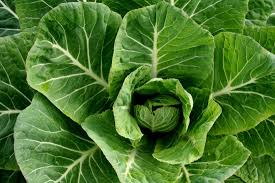The first week of February is known for celebrating African Heritage and Health. The nonprofit nutrition- and food-focused group Oldways kicks off the beginning of Black History Month, with a focus on the nutritious foods that celebrate heritage, community, and nutrition.
The varied foods that make up traditional African Heritage Diet food pyramid is based on a healthy, traditional selection filled with lots of fresh vegetables, fruits, fish, and grains.
As sponsors of African Heritage and Health Week, Oldways helps spread the word about healthful eating that honors traditional foods and the importance of community. Foods in the pyramid, which, according to Oldways, was developed in 2011, also honor “distinct flavors and traditions of four major regions of the African Diaspora—West and Central Africa, the American South, the Caribbean, and South America.”
Bringing these distinct flavors into food preparation can help individuals feel connected to their larger community or to family far away. And when food, flavors, and traditions are all celebrated, individual dining can easily become more of a community event. People all over use this week to cook traditional and familiar dishes based on their own family and culture, but they also use the week to try out new foods and new ways of preparing familiar ingredients.
Inviting others to share a meal, to come to a potluck, or to even bring favorite traditional foods to school, work, or a neighbor’s house brings a community closer together and helps build the kind of networks and supports that many people miss in our modern busy world. How beneficial it is when people find they can rely on foods and recipes that have been made for generations to help them continue on a path to their best personal health.
If cooking traditional foods interests you, this kind of celebration might inspire you and your friends or family to take a cooking class. Or if you are a cooking pro and have a few traditional dishes that are your go-to dishes, you can invite people to join an informal class that you lead. Building connections around food and traditions is a direct way to feeling like you’re part of a bigger story. Maybe your ancestors come from the Caribbean but you’ve never left New York state—cooking foods that your ancestors might have prepared links you to them in ways that can spark your imagination.
And preparing some of these traditional, healthy foods—the kind that rely on whole foods with few, if any, processed ingredients—is a boon to your health. Experimenting with new spices, broths, ingredients, and preparation will bring out flavors that are fun and fresh and help you keep a healthy diet. Your body will be nourished from the ingredients and as you share your food or take a meal with others, your emotional self will be soothed.
If you’re not of African heritage, you can still use this week to learn more about African heritage and health or how your own ancestors might have cooked. Take some time to try a new recipe your great-grandparents would recognize. Even better, host a potluck and ask your guests to prepare one dish that is based on their heritage. You might find you have a new tradition—and a new stack of delicious—and meaningful—recipes.
- WOC Nurses Week Highlights Specialty - April 16, 2024
- Honoring Radiology Nurses Day on April 12 - April 12, 2024
- Travel Offers New Career Possibilities - April 8, 2024



